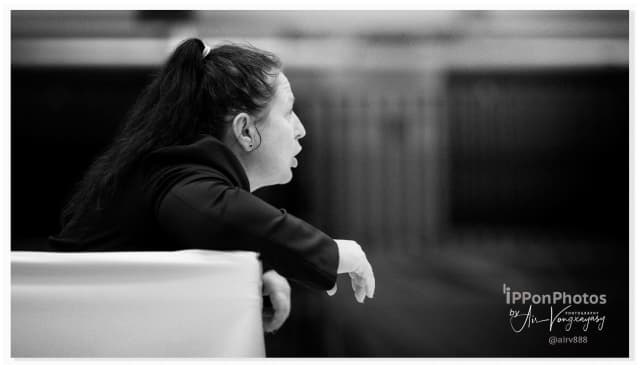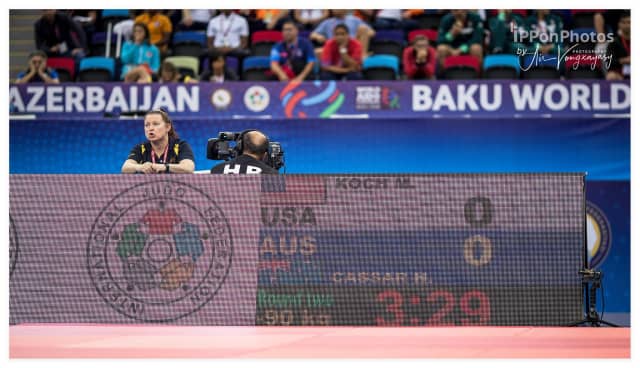- How was nutrition during this challenging time? How did it change?
We don’t have a centralised programme and even though we do provide support to our athletes with nutrition, in the end they manage their own requirements. Of course in this time it is very important to balance the calories with the reduced training and to eat healthy, nutritionally sound food, to support the immune system.
- How important is the psychological aspect to keep judoka focussed in such a difficult period?
It is one of the most important aspects during this challenging time. There are a lot of uncertainties at this point so it is difficult to make concrete plans. Keeping positive and not thinking too far ahead is very important. The goal remains the same and athletes must not lose sight of what they set out to achieve. Focussing on the now and the daily tasks is helpful to stay on course.
- What did you tell them to encourage continued training and to not lose hope?
We tell the athletes to control the controllable and find something positive in theit situation. For example many of them are still young and this downtime gives them extra opportunity to improve their game or learn and practise new techniques. Our athletes have access to an Athlete Wellbeing and Engagement team and we strongly encourage them to use this service.
- How about you? What did you tell yourself?
I tell myself every day that this sad situation is only temporary and it will be over one day. Like the athletes, I try to focus on the now and what I can do now instead of looking too far ahead.
- Are you staying together to train continuously?
At the time of the initial outbreak of Covid-19 our athletes were together in the OTC in Nymburk. Then the Rabat Grand Prix and the Ekaterinburg Grand Slam were cancelled and we were forced to bring the athletes back to their hometowns. We have a couple of athletes based overseas and they have been isolating there and following local guidance. The rest of the athletes are spread around Australia and they spent the lockdown at home as all gyms and dojos were forced to close their doors. We had to become creative and take equipment home to continue the physical preparation. We do have two sibling families in our team and they were able to do some judo at home. Four weeks ago we were able to bring the team together in Melbourne for a restart camp. We will continue to train together in this small group until overseas travel becomes possible.
- If not together, how do you keep contact?
Our national coaches keep contact with team members via messenger apps. We keep our athletes engaged via social media games and remote team activities.
- Personally how do you handle your time now? Is it different? Time at home versus time at work?
Personally, this year has been a very interesting one for me. In January I gave one of my kidneys to my son who was in kidney failure due to a serious genetic condition called cystinosis. My husband, Daniel Kelly, is one of our senior national coaches and he travelled with the team at the beginning of this year. I mostly concentrated on getting back to full health while directing the programme from home. Then came March and we all ended up at home together. The national office is in Canberra but I normally work from home in Melbourne when I am not travelling so in that sense it is the same routine for me. Having to home school our children was definitely an interesting experience for us.
- What is your personal feeling/thought about the global situation and how do you see the future of judo?
I feel that although many countries did well controlling the pandemic it is still far from being over. I empathise with the many coaches who run centres and were forced to close their businesses. I worry that judo will lose many young athletes who will not return to the sport after spending extended time away, perhaps discovering a life without training twice a day. I do hope that the Judo World Tour and safe travel can return this year.
- Have you modified the specific judo techniques used in training for the team at this time?
At the beginning of coming together and training at the restart camp we have gone back to basics and concentrated a lot on getting the movement right for each athlete, since they have spent an extended period off the mat.
- What training equipment do you like judoka to use when training alone/in isolation? (Such as Uchi-Komi bands, kettlebells, rowing machine, Bulgarian bag, wobble board, Swiss ball or many others)
Many team members took rowing machines home, plus weights, kettle bells and uchi-komi bands. Work during the lockdown was prescribed by their personal coaches.
- Do you think there are some positives to take from this challenging global situation? Which positives apply to you, your life or your work?
There were definitely many positives: 1. We had couple of athletes recovering from serious injury, whom were not ready to compete in March. Now they have had more time to recover and should be in much better condition to compete when the World Tour returns. 2. We were able to concentrate on improvement areas for each athlete that would have been harder to do in competition season. 3. For our family, with both of us involved with the national team, it was great to spend some time together and just do simple things with the children. It was definitely nice to have dinner together during the last few months.
- Which judoka really impresses you at the moment and why?
All of our national team members impress me with how they are coping with the situation. They are focussing on the what they can improve on a daily basis and not getting caught up on the uncertainty of the future. The mental strength and resilience they are building through this pandemic will serve them well in the future.
- If you found Aladdin's lamp and were granted 3 wishes, what would you wish for?
That would be fantastic! 1. I would wish that this pandemic would go away and everyone around the world could return to their regular life. 2. I would wish a successful Olympic campaign for the Australian Team, including qualifying more athletes than we currently have and have at least one top 8 finish in Tokyo. 3. I would wish that the illness my son has had an approved cure and he had access to in in Australia.


